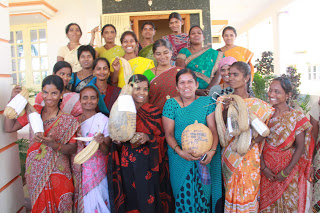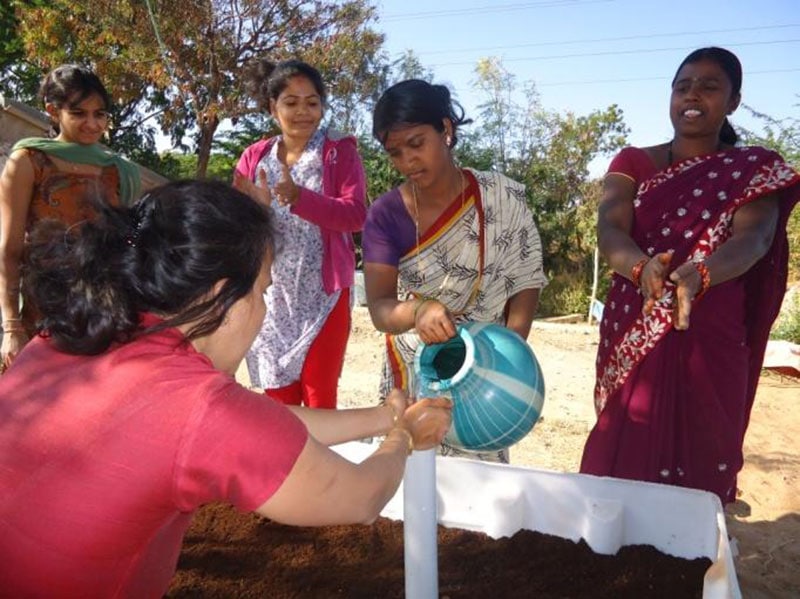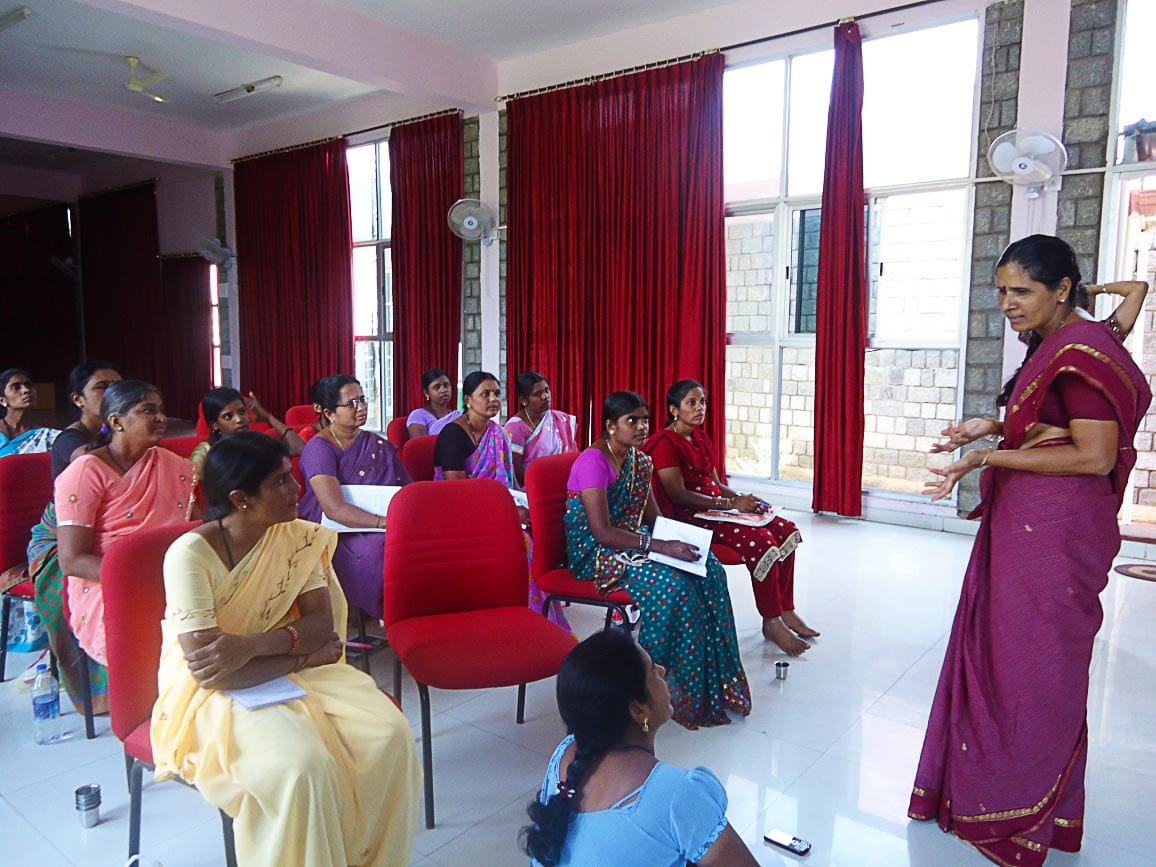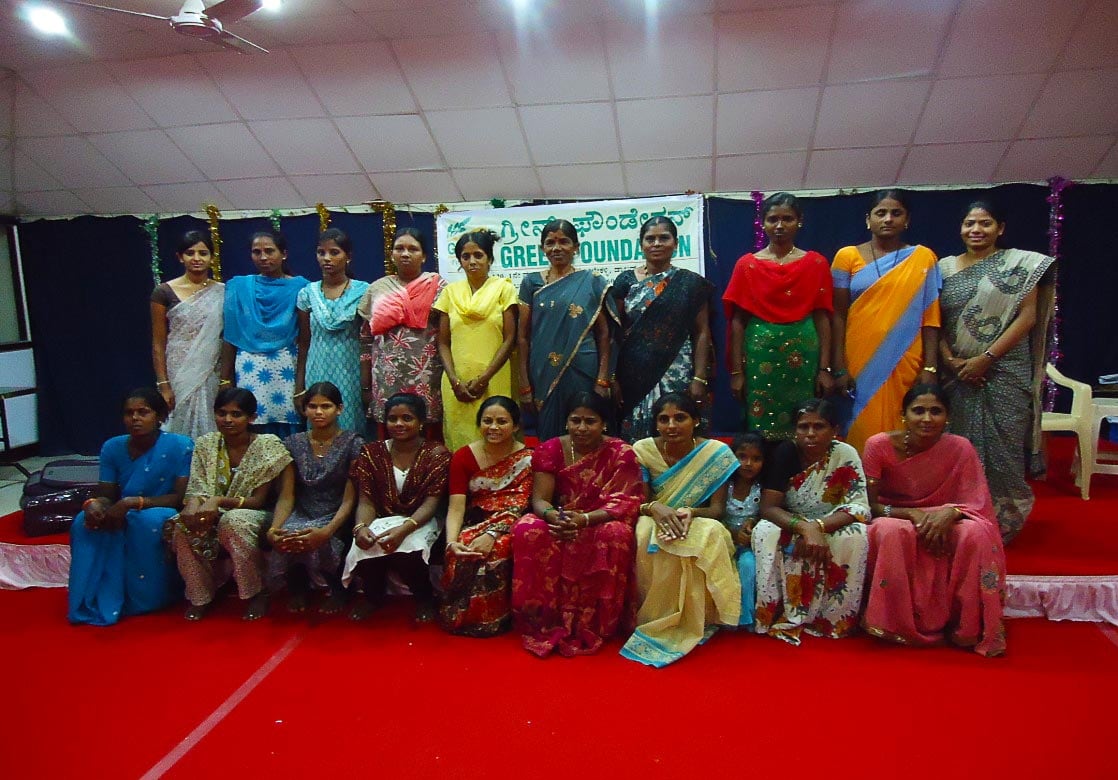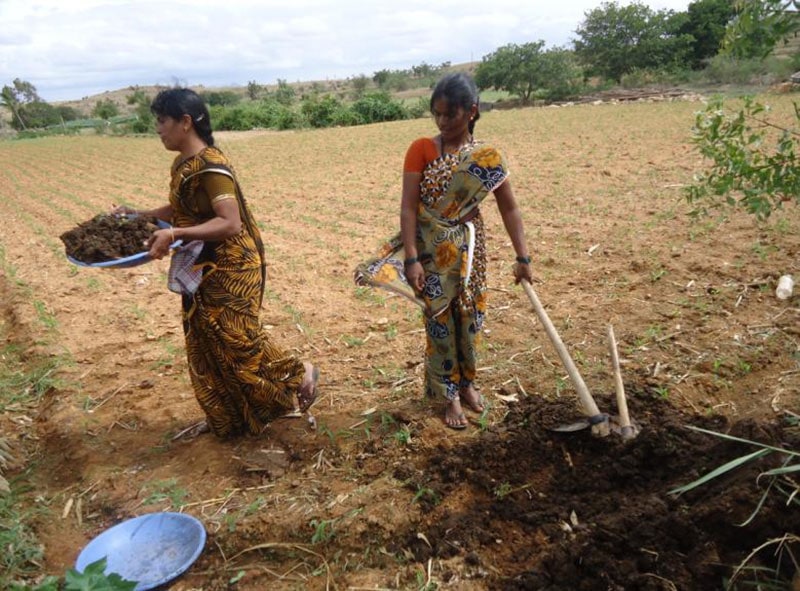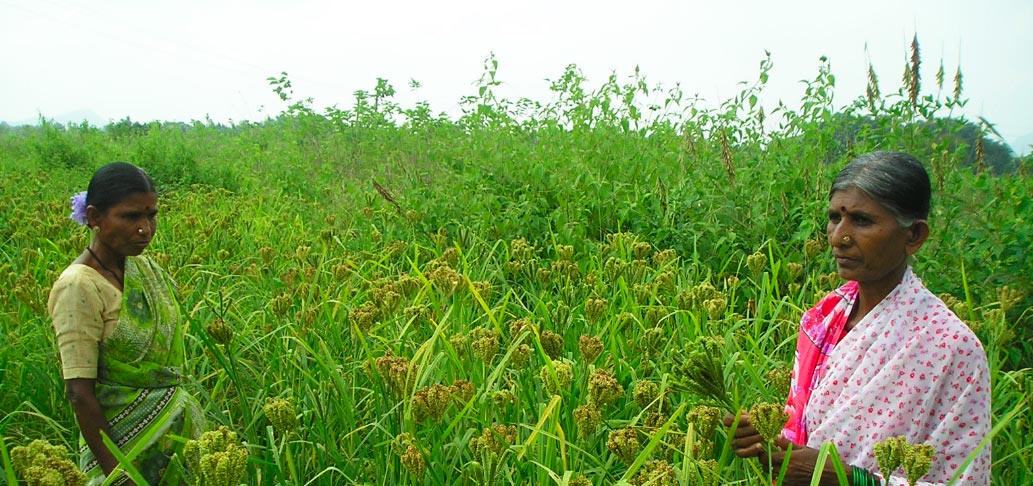In the 18+ month partnership between GREEN Foundation and WEA, a group of 40 selected women farmers and agriculture practitioners from drought-prone Karnataka, were mentored and trained to develop their leadership skills so that they, in turn, could lead their own rural communities toward sustainability.
The training, designed and hosted by GREEN Foundation, supported this group of women farmers to engage in a series of technical trainings on climate change resilience, including topics such as: sustainable agricultural practices, renewable energy and bio-fuel, vegetable wicking beds for drought farming, community radio, and vegetable processing. Each trainee received a seed grant to train others in her community as well as launch her own livelihood practice.
Meet the Women Leaders
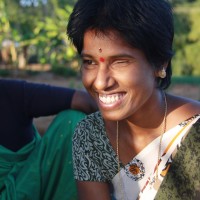
After the training, Yahoda immediately began sharing her skills and trainings with others. She is supporting the women in her Self Help Group to assert and access their rights and entitlements, and is also working towards stopping child marriages.
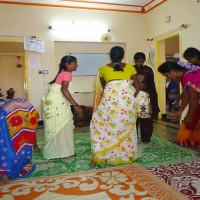
Bhagyamma, Training Participant
For Bhagyamma, leaving her home for the training was a big deal in and of itself. "I was always tied down by household chores, and hardly knew the outside world. After joining the program, especially with the theatre workshop, I developed confidence to stand up for myself…I feel some day if I am in a financial problem, I can choose an activity and thrive based on the training I have undergone."

AT A GLANCE
Nearly 72% of employed Indian women are in the agriculture sector, yet they comprise barely 11% of landowners.*
Women are the backbone of the rural economy in developing countries and are responsible for 60-80% of food production. They also tend to be the most knowledgeable about crop varieties.*
India is the fourth largest greenhouse gas (GHG) emitter, accounting for 5.8% of global emissions.*

"I felt like I was in a well and now I am surfacing and swimming in a bigger world."
— YASHODA, TRAINING PARTICIPANT

The Project
Not only did this training support participants to build their skills in sustainable farming and seed saving practices, but it provided women the opportunity to break through mental, social and cultural barriers that define women’s lives in this region, and gain confidence in their leadership.
Our Training, supporting women from Chitradugra and Kanakapura, included an assessment phase to best understand the gaps in support for women in these regions. In between convenings, GREEN Foundation team members visited the training participants in their homes, talking to family members to foster support of the program, initiating discussions in local institutions such as Self Help Groups (SHGs), and holding special meetings with Mahila Sathis (a network of trained community women members initiated by GREEN to promote sustainability).
The success of the training session helped many of the women see past social barriers and mindsets, awakening the possibility of change within themselves and their communities. Through this partnership, women farmers learned skills that would aid them in launching a livelihood practice that could initiate a chain of micro-enterprises within their own communities.
Impacts
The 40+ women farmers who participated in this leadership and capacity building training received ongoing training and mentoring to learn additional skills. For example, a group of participants launched a women-run community radio show that shared critical and timely information on climate change and sustainable agriculture with other farmers in this climate-impacted region. This project:
- Improved agricultural production and promoted sustainable agriculture and seed saving practices;
- Ensured women farmers receive timely information on climate change;
- Shared information on market linkages for women farmers who often do not have access to business opportunities;
- Helped democratize knowledge, enabling farmers to share holistic practices in the face of aggressive promotion of industrial agriculture paradigm in India.
